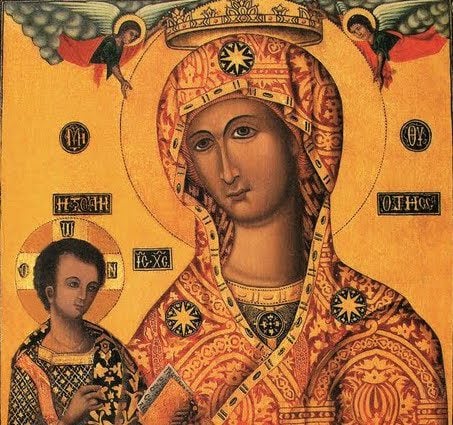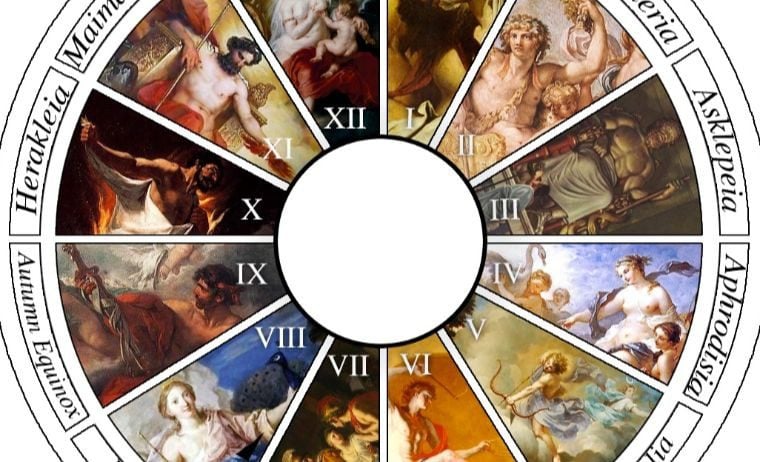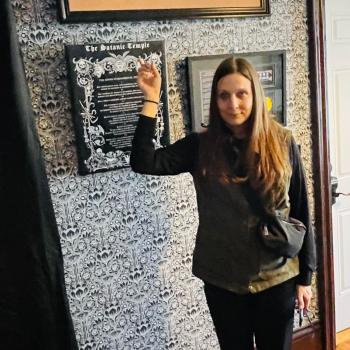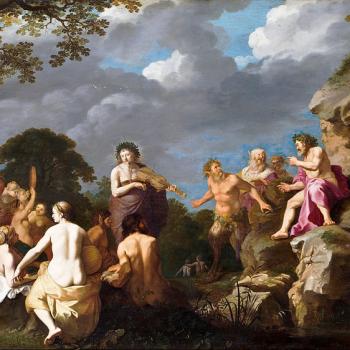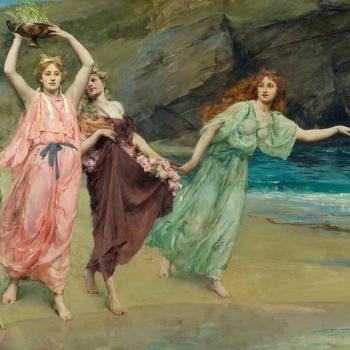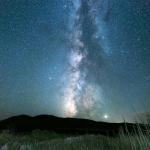Here on the Hearth of Hellenism, my goal has always been to share with my audience information on Hellenism that I think will benefit them and their spiritual practice. This blog has also been a way for me to document my Hellenization process as a Greek-American who has grown closer to the Greek tradition over the last few years. I am not an expert on Hellenism on a professional level. I am however a graduate student in history, and I am Greek. My culture is Hellenism so I do think I can speak about Hellenism from my perspective as an insider to the culture, as a Greek in the diaspora, living in New York.
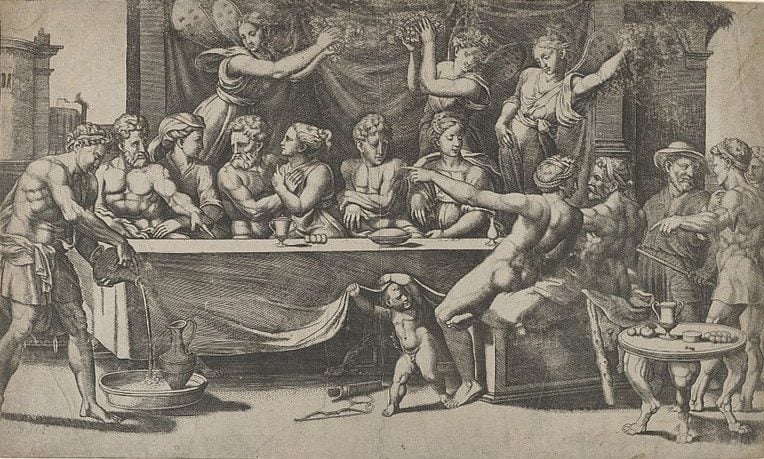
I have to say all of this because I have come into conflict with one or more people in the pagan community who make the error of thinking that Hellenism only refers to ancient Greek religion and or culture before the takeover of Christianity. One or more people have laughed at me when I said Greeks are the ones who define Hellenism – their position is that no one defines it. One or more people think that while their Hellenism is not like my Hellenism, that it is ok. I am so sorry to tell you that it is not ok because your Hellenism is not Hellenism. You really should not be calling what you are doing Hellenism – I shall explain.
Hellenism is Greek culture. The culture of almost 11 million Greeks in Greece and millions more in the diaspora around the world. We see our culture as Hellenism, a living thing that we partake. Hellenism is the -ism of Greeks, not just of the past but also the present and future. When someone tells me Greeks do not get to define their own culture, please tell me who does then? Who determines what the Greek experience is?
You might be thinking, “you guys got Christianized and stopped worshiping the gods” (in public). You might say Greeks are not doing Hellenism if it is not with the gods. I am sorry, but you cannot define a culture that is not yours. You cannot define us as not doing Hellenism simply because you cannot recognize it and that it is not functioning as you expect it to perform. Hellenism is more than religion.
While the ideal version of Hellenism does include widespread public worship of the gods and such, the fact that history played out the way it did and that the Greeks became victims of Fortune should not make you look down at us as less than compared to our ancestors. Greeks have been victimized by Christian ethnocide (killing off the culture) along with Ottoman occupation, slavery, and genocide. So please understand that Hellenism has taken enough beatings, you don’t need to kick us as well.
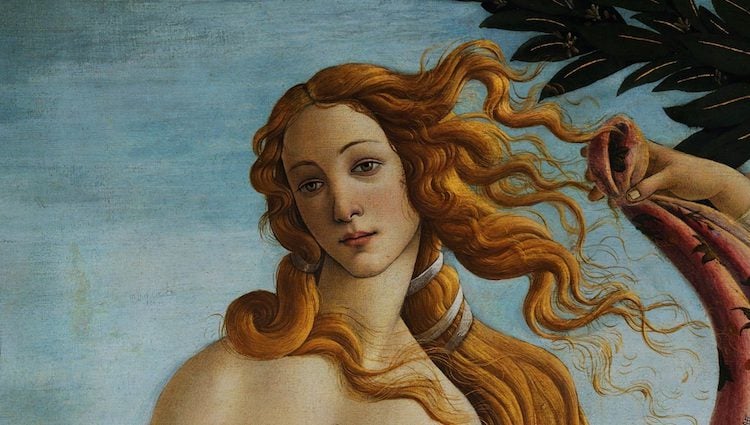
Even though Christianity dominated, Hellenism could never entirely be removed. Hellenism found its way into Christian theology for example. Christians appropriated Plato, not something I am happy about because they bastardized Plato, but never the less that shows you the power behind the tradition – the Christians could not avoid it, so they had to use it.
Even though most became Christians, not everyone did. Not every person was under the empire’s control always. Throughout Byzantine’s history the size of the empire shrunk and expanded and by the end, the size of the empire was essentially the city of Constantinople itself. Even under Ottoman rule, many Greeks were not under direct control because you can’t effectually have control over everyone in every space. There were people up in the mountains (it’s hard to travel in Greece because of the mountains) that were able to avoid the Ottomans. The island of Crete would not come under full Ottoman control until 1715, over 260 years after Constantinople fell to them. What do you think some of these people were doing unsupervised, on their islands or up in the mountains? No “pagans” existed on some level one way or another? Let’s be real.
Ok, let’s say that’s too far-fetched for you to believe. It’s hard to document the existence of a persecuted people that would like to remain hidden after all. What about the rest? What did the Greeks who became Christians do to keep their gods? They infused them into the new religion. See the thing people do not realize is that if you want to find the gods, you’ll spot them.
An excellent example comes from the Trooditissa Monastery in Cyprus. In this monastery, you will find Aphrodite. The monastery has an icon of the Virgin Mary (Panagia) of Trooditissa, also known as Panagia the Olympian or Panagia Aphroditissa. In the icon, Mary has pomegranates on her garment. Pomegranates are the sacred fruit of Aphrodite. What is also interesting is that women visit the monastery for aid with fertility, just as they did before Christianity, when women went there to ask Aphrodite for help.
While we may not look “pagan” in your eyes, we still behave like our ancestors – all that changed was management. Many of our folk traditions and dance have come down to us from ancient times. We still cook ancient foods like Koliva which is made for memorial services at Church. Koliva is the ancient panspermia which may go as far back as the Minoans.
Our festivals for the gods became saint’s days. Names changes, functions did not. We still gather together, eat, drink and dance. Some were so determined to hold on to their gods as was the case in Eleusis, home of Demeter. While the church replaced her with St. Demetrius, the locals at Eleusis created St. Demetra – retaining the ancient statue of Demeter for use, adorning garlands on it for a good harvest.
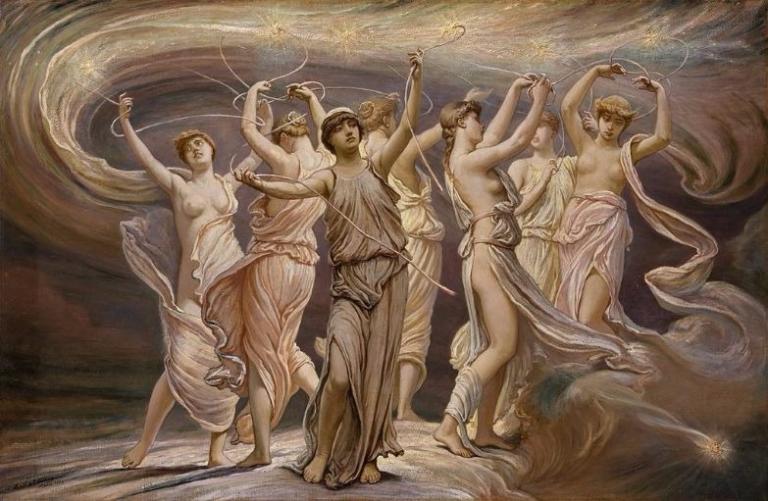
Hellenism might look like Hellenism to you; I am sorry that the temples are not standing intact and that the gods are not on the minds of Greeks all the time. But they still are in our hearts of regular people. Growing up, my father exposed me to Hellenism as much as he could before his early passing. Once when we visited our village in Greece, I recall him showing me the mountain where Hercules wrestled the Nemean lion. It was not the where it happened, but that’s not the point of telling the myth. He wanted not only to teach me the myth but to have an experience and connection to that myth. He also would put on documentaries on Greek history, where I saw the temples reconstructed from their ruins, I was amazed.
Did you know children in Greece are taught ancient Greek so they can read Homer? Did you know Greeks never stopped speaking the language? The language is our strongest link to our ancestors. The Greek language has never ceased to be spoken. Our language is what has always connected us to our past because we have always had access to Plato and other classical works. I won’t defend the Byzantines too much, but I will say that yes, they did preserve classical writings (whatever that was left) in the Imperial Library. When Constantinople fell to the Turks, the scholars fleed to the west with their books and fueled the renaissance in Italy.
So why exactly can’t you call what you are doing Hellenism? Hellenism is a living thing and directly connected to the Greek experience. If you have no interest in the Greek experience after antiquity into the present day – then it is not Hellenism you want. Hellenism is a living culture and heritage. It is the language, food, songs, and dances. The video below is an example of traditional dances, coming down from ancient times. The first dance shown is called Pyrrichios, a war dance. This is Hellenism in action. It is not just the gods; it is the whole Greek experience both then and now.
Am I trying to define your path? NO! The gods are free for everyone; you are free to worship them. No one owns the gods; the gods are not restricted to a group of people. Whoever you are that is reading this article, know that the Greek gods are your gods also. Worship them and love them as much as I do. If it makes you happy to reconstruct the religion and try to relive the past go ahead, but please do not call it Hellenism. If you do not want the living Greek experience in 2018 and opt instead for a recreation of the Greek experience from the past, that is dead Hellenism. That purist, living in the past does not reflect an organic living experience that is shared by others. So please call it something else, because what it is you are doing does not reflect reality.
I write the Hearth of Hellenism blog, so I can give you a piece of the living Greek experience however tiny it may be. I want people to experience it; I invite people to our rituals in New York if they show interest and can come. I make public as much as possible the activities of the Greek community to others so they can learn from us. Contact with Greeks is essential because that is how Hellenism spreads. In the ancient world, Hellenism spread through contact with Greeks and not just in books. You can learn much from books, but you will only learn about dead Hellenism that way.
Please understand that the term Hellenism is way much more than ancient religion and if you are unable to see current Greek culture as Hellenism, don’t call your religion Hellenism. Do not call your religion Hellenism if you think that the ancient Greeks are the only “real” Greeks. Do not call it Hellenism if you have no desire to Hellenize beyond worship. Do not call your religion Hellenism if you deny Greeks self-determination to define their culture and religion. Don’t call your religion Hellenism if you only want the gods and cannot give back something in return to contribute to Hellenism. Don’t call it Hellenism if you don’t actually care about Greeks.
Please understand that this is not about limiting you or policing you and your path. The gods are for everyone; you can worship them as you desire. Throw Thelema into it, do whatever syncretism you want, just don’t say what you are doing is Hellenism. This is about the word Hellenism and explaining the depth of it, what it means and what it represents. Hellenism is much more than religion. Hellenism is a people’s living culture and if you have no interest in that culture, to be a part of it or learn our story as a people after antiquity or to become part of our story, don’t call your religion Hellenism. Call it anything else but Hellenism.


